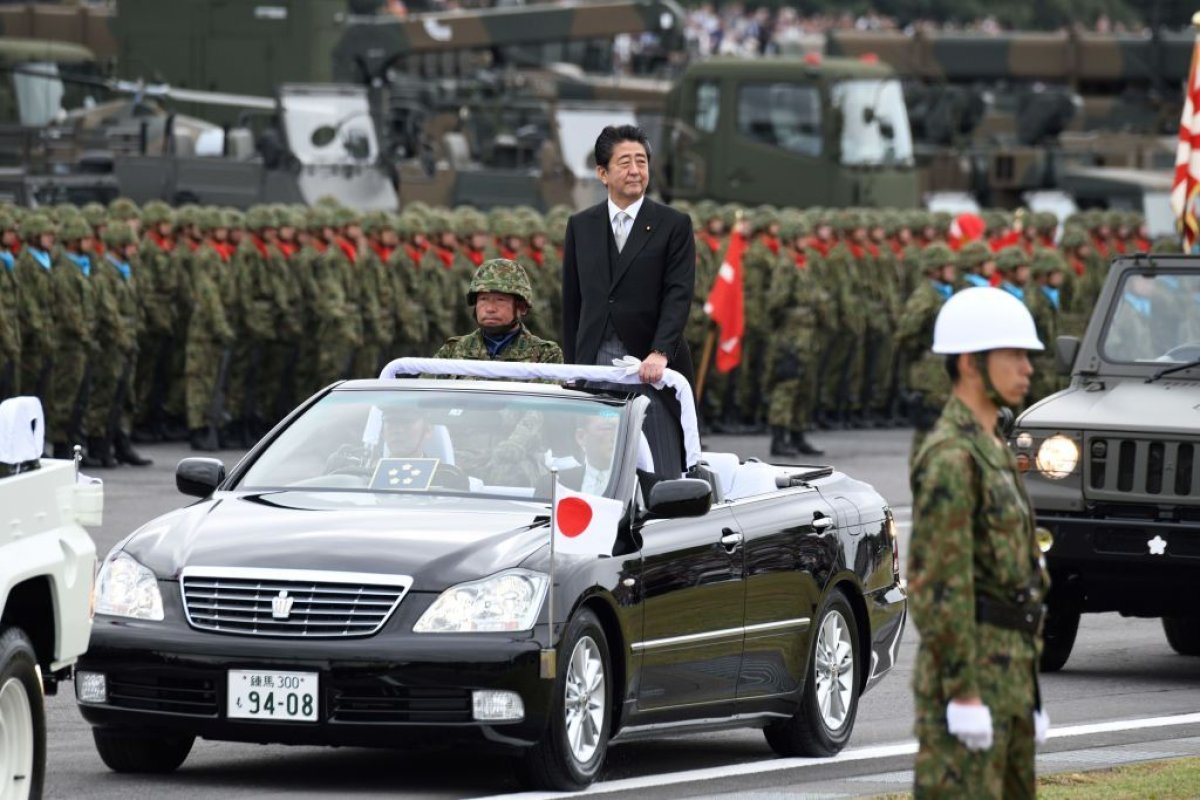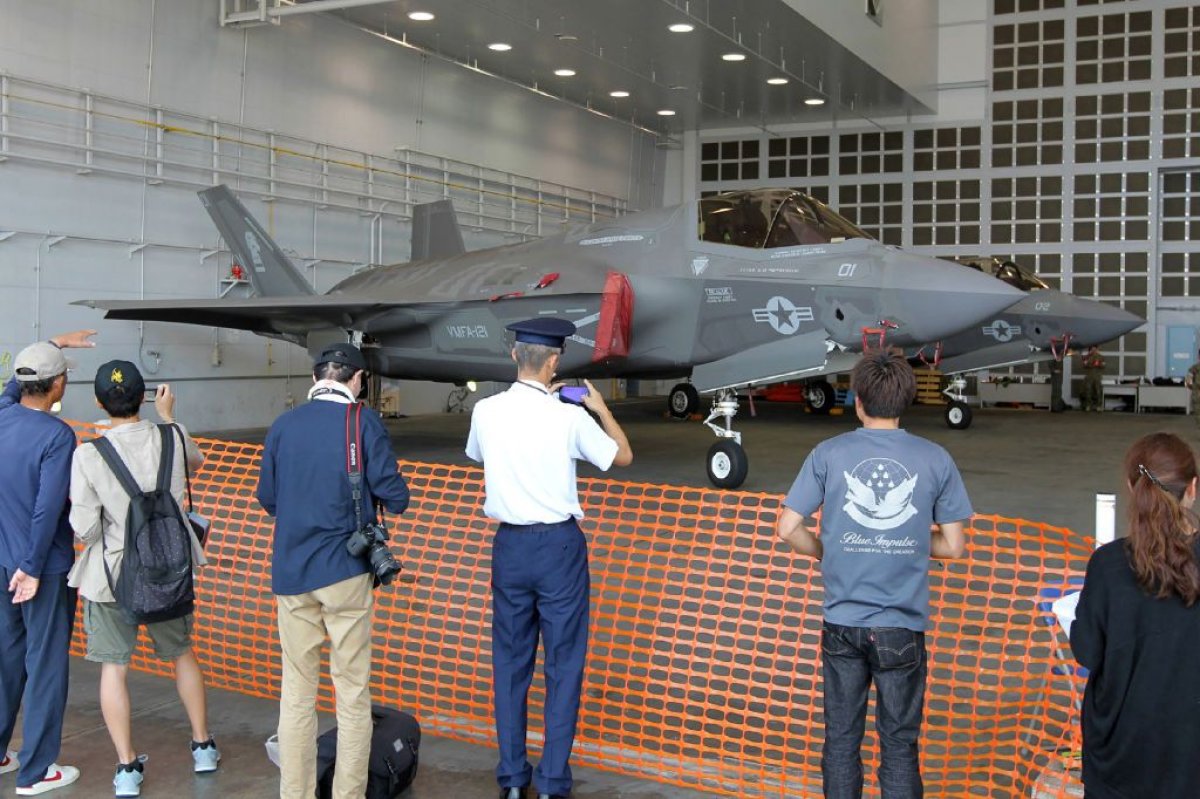Japan's government has approved a significant military budget increase that will provide the East Asian nation with the capabilities to attack foreign-enemy bases for the first time since the end of World War II.
Prime Minister Shinzo Abe's cabinet made the decision on Tuesday, raising military spending substantially to 17 trillion yen (or $240 billion) over the next five years, The Independent reported. A large portion of those funds will be spent on weapons made in the United States, a move that has been urged by President Donald Trump.
The decision came despite the 1947 Japanese constitution, which in Article 9 condemns war and says that "land, sea and air forces, as well as other war potential, will never be maintained." Abe has pushed for amending the article, and urged an amendment that formally recognizes the nation's self-defense forces (SDF). However, recent polling suggests that less than 40 percent of the Japanese population supports such a move under the current prime minister's leadership.

With or without an official change, Japan's government is dramatically increasing the country's military capabilities. Under the new spending plan, Tokyo will spend about $10 billion to become the largest customer—besides the U.S.—for Lockheed Martin's F-35 fighter jets, according to The Wall Street Journal. Previously, the government had ordered 42 of the aircraft, but the new spending plan has increased that order to 147. The spending plans also call for Japan's first aircraft carrier as well as long-range cruise missiles, giving the country the ability to strike distant enemy targets.
Abe's government pointed to growing threats from regional rivals to justify the decision.
"The United States remains the world's most powerful nation, but national rivalries are surfacing and we recognize the importance of the strategic competition with both China and Russia as they challenge the regional order," defense guidelines said, according to The Guardian. "We need to develop truly effective defense abilities, rather than simply expanding traditional ones."
Kongdan Oh, an analyst at the Institute for Defense Analyses, who led efforts to rewrite U.S.-Japan military guidelines in 2015, told The Independent that increased militarization was an "unavoidable evolution," despite being a step "away from the image of pacifism."
"If an adversary is building capability to hit Japan at any given time with WMDs [weapons of mass destruction], should Japan's leadership tolerate this development and hold up its hands saying, 'Well, not much we can do?'" the expert pointed out.

Fellow Asian nations, including U.S. rivals China and North Korea as well as close Washington ally South Korea, have expressed their concern, however.
"For historical reasons, Japan's movements in the military security field have greatly concerned its Asian neighbors and the international community," China's foreign ministry spokesperson Hua Chunying said, The Japan Times reported.
South Korea's Foreign Ministry spokesperson Noh Kyu-duk similarly urged Japan to follow the "spirit of its pacifist Constitution."
Uncommon Knowledge
Newsweek is committed to challenging conventional wisdom and finding connections in the search for common ground.
Newsweek is committed to challenging conventional wisdom and finding connections in the search for common ground.
About the writer
Jason Lemon is a Weekend Editor at Newsweek based in Brooklyn, New York. Prior to taking on the editor role, Jason's reporting focused on ... Read more
To read how Newsweek uses AI as a newsroom tool, Click here.








